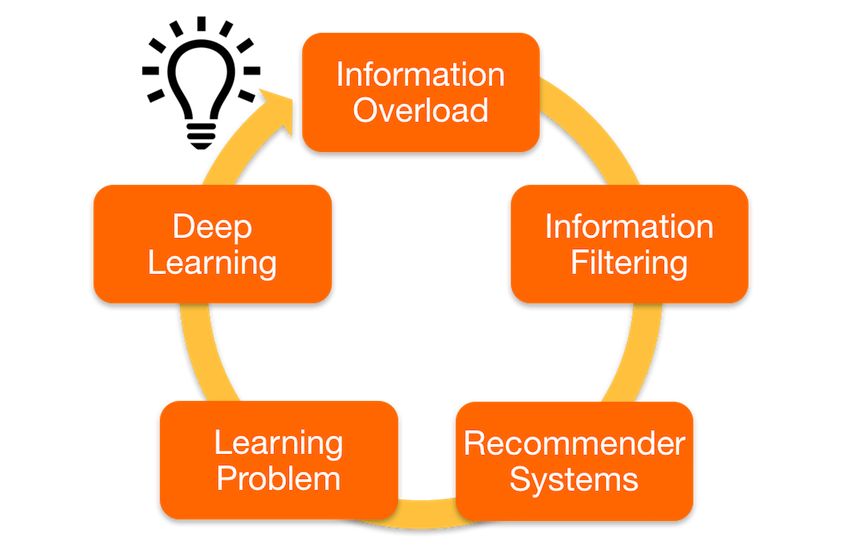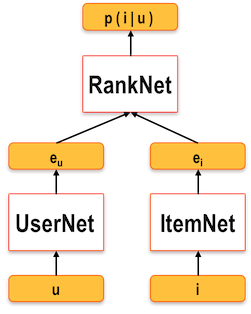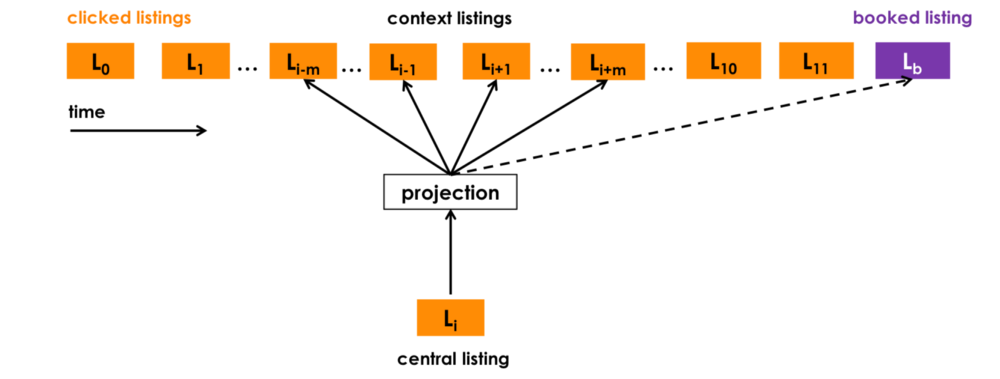LibRec 精选:深度学习在汽车和房屋推荐方面的应用
推荐进展 第三期(更新至2018.4.1),论文中的摘要部分经过句子抽取算法处理过。
1. 深度学习用于推荐系统:汽车推荐 @ mobile.de
https://ebaytech.berlin/deep-learning-for-recommender-systems-48c786a20e1a
"It is not information overload, it's filter failure" by Clay Shirky, New York University, 2008.
The overall tasks include embedding, candidate generation and ranking.
2. 什么是推荐系统?可视化解释:https://www.bbvadata.com/recsys/#0
3. AirBnb for Room Recommendation: https://medium.com/airbnb-engineering/listing-embeddings-for-similar-listing-recommendations-and-real-time-personalization-in-search-601172f7603e
4. Evaluation of Session-based Recommendation Algorithms
Malte Ludewig, Dietmar Jannach
https://arxiv.org/abs/1803.09587v1
Most academic research is concerned with approaches that personalize the recommendations according to long-term user profiles. Given the high practical relevance of the problem, an increased interest in this problem can be observed in recent years, leading to a number of proposals for session-based recommendation algorithms that typically aim to predict the user's immediate next actions. In this work, we present the results of an in-depth performance comparison of a number of such algorithms, using a variety of datasets and evaluation measures. Our experiments reveal that algorithms of this latter class, despite their sometimes almost trivial nature, often perform equally well or significantly better than today's more complex approaches based on deep neural networks. Our results therefore suggest that there is substantial room for improvement regarding the development of more sophisticated session-based recommendation algorithms.
5. Collaborative Filtering with Topic and Social Latent Factors Incorporating Implicit Feedback
Guang-Neng Hu, Xin-Yu Dai, Feng-Yu Qiu, Rui Xia, Tao Li, Shu-Jian Huang, Jia-Jun Chen
https://arxiv.org/abs/1803.09551v1
Latent factors based collaborative filtering (CF) has become the popular approaches for RSs due to its accuracy and scalability. Recently, online social networks and user-generated content provide diverse sources for recommendation beyond ratings. Although {\em social matrix factorization} (Social MF) and {\em topic matrix factorization} (Topic MF) successfully exploit social relations and item reviews, respectively, both of them ignore some useful information.
6. Product Characterisation towards Personalisation: Learning Attributes from Unstructured Data to Recommend Fashion Products
Ângelo Cardoso, Fabio Daolio, Saúl Vargas
https://arxiv.org/abs/1803.07679v1
In this paper, we describe a solution to tackle a common set of challenges in e-commerce, which arise from the fact that new products are continually being added to the catalogue. The challenges involve properly personalising the customer experience, forecasting demand and planning the product range. We argue that the foundational piece to solve all of these problems is having consistent and detailed information about each product, information that is rarely available or consistent given the multitude of suppliers and types of products.









